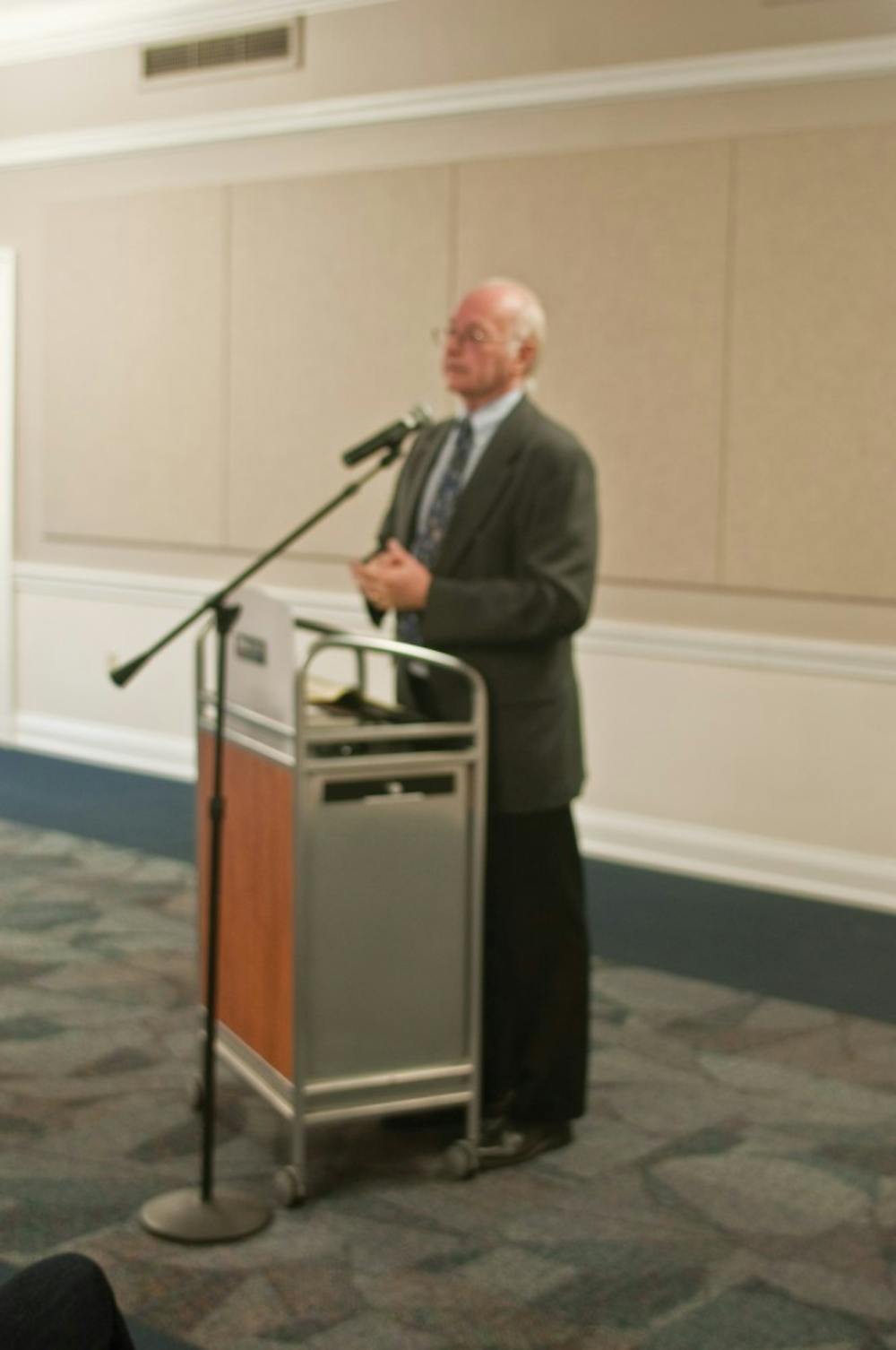Politics Prof. William Quandt spoke yesterday about the prospects for the Arab Spring as part of the Interdisciplinary Seminar Series sponsored by the Center for International Studies.
The term Arab Spring refers to widespread uprisings by citizens of many North African and Middle Eastern countries which led to the ousting of several dictators and a series of governmental changes. Quandt described the Arab Spring as a "series of remarkable developments" by oppressed people in countries such as Tunisia, Egypt, Morocco, Libya and Syria. The uprisings were largely nationalistic, populist, reformist and democratizing.
Quandt put the Arab Spring in an historical context, saying "we haven't seen these kinds of large scale mass movements for a long time, but they're not unprecedented either."
What distinguishes these uprisings from earlier movements in the region is that they are larger, better organized and "seem to inspire people elsewhere," he said.
The nature of the uprisings comes from the involvement of relatively young populations who are better educated than previous generations, Quandt said. He added that the rise of people with degrees, coupled with the world economic crisis, caused a shortage of jobs, fueling anger toward governments in the region.\nQuandt pointed to politics as being central to discontent in the region, noting that uprisings occurred mainly in long-standing regimes.
In Egypt, for example, "people wanted [Egyptian leader Hosni] Mubarak to go," he said. "It wasn't even 'bring down the entire regime.' It was 'Mubarak should go.'"
Quandt also credited the widespread revolutions to the emergence of new communication technologies, such as the Internet and cell phones. "Government no longer controls the flow of basic information," he said.
Despite these factors, regimes in Libya and Syria are still putting up a fight.
In Libya, for example, there were much more violent confrontations and the situation was made more complex by external involvement from countries such as the United States. In Syria, "a regime that will not go easily," Quandt said protest movements in the country have not yet captured mass support in its two largest cities.
With the elimination of authoritarian regimes in other areas, however, citizens need to create new forms of government. Quandt said during this process, "there will be a lot of missteps along the way," which are characteristic of almost every revolution in history.
Despite the uncertainty of the situation, Quandt stressed that the Middle Eastern and North African regions have changed.
"This is something fundamental," he said. "People have stopped being afraid of the regimes which had ruled by coercion and patronization."
One notable trait of the Arab Spring uprisings is that most started peacefully. Despite the arrival of police and military forces in many cities across the region, citizens "tried to make it clear that they would not take up arms,"







